Are you living with a debilitating medical condition in Maryland and are wondering if it qualifies for medical marijuana use? Several ailments can qualify an individual for MMJ use in Maryland, but knowing exactly how to become qualified isn’t always straightforward.
Here, we’ll explain the specifics behind Maryland’s requirements so you can determine if your condition makes you eligible and get started on your path to relief with medical cannabis.
We’ll cover who is eligible, which documents need to be certified by a medical cannabis doctor, and what it specifically takes to become qualified under MD legislation – all as part of our goal of providing clarity on this process and empowering patients!
What is Medical Marijuana?
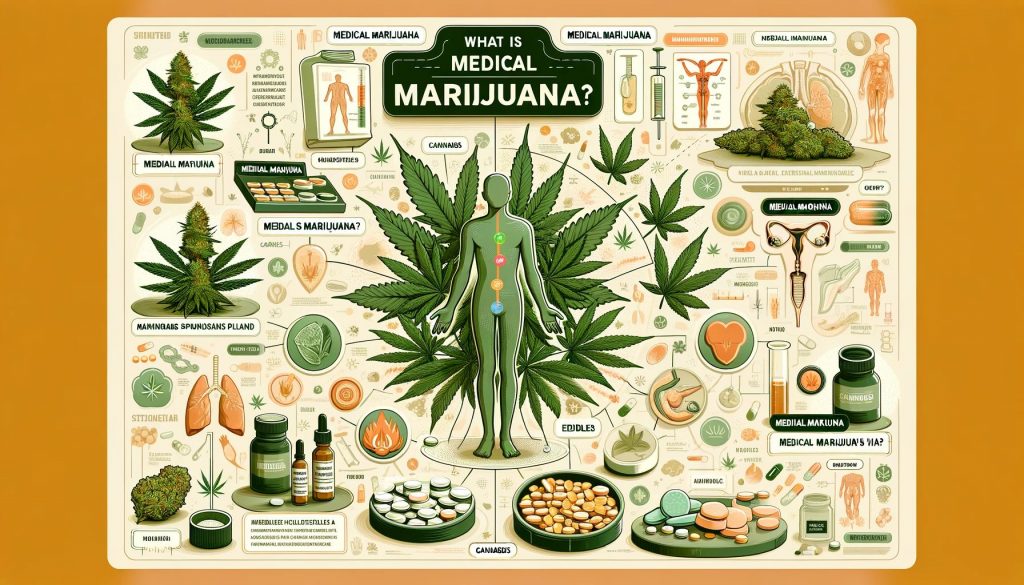
Medical marijuana in Maryland refers to the use of marijuana for therapeutic purposes, following a legal framework that permits qualified patients to access and use medical cannabis treatment options for various medical conditions. The Maryland Cannabis Administration regulates this program (MCA) and allows eligible individuals to obtain medical marijuana with a valid recommendation from a licensed healthcare provider.
The Maryland Medical Marijuana Program provides access to various cannabis products, including:
- dried flower
- oils
- concentrates
- topical ointments
- waxes
- tinctures
- dermal patches
- suppositories
- salves
- and capsules
Patients who meet specific eligibility criteria and receive a medical marijuana card can purchase and use these products to manage symptoms and improve their quality of life. The program aims to offer relief for individuals with qualifying medical conditions while maintaining strict regulations to ensure patient safety and product quality.
What are the Qualifying Conditions for Medical Marijuana in Maryland?
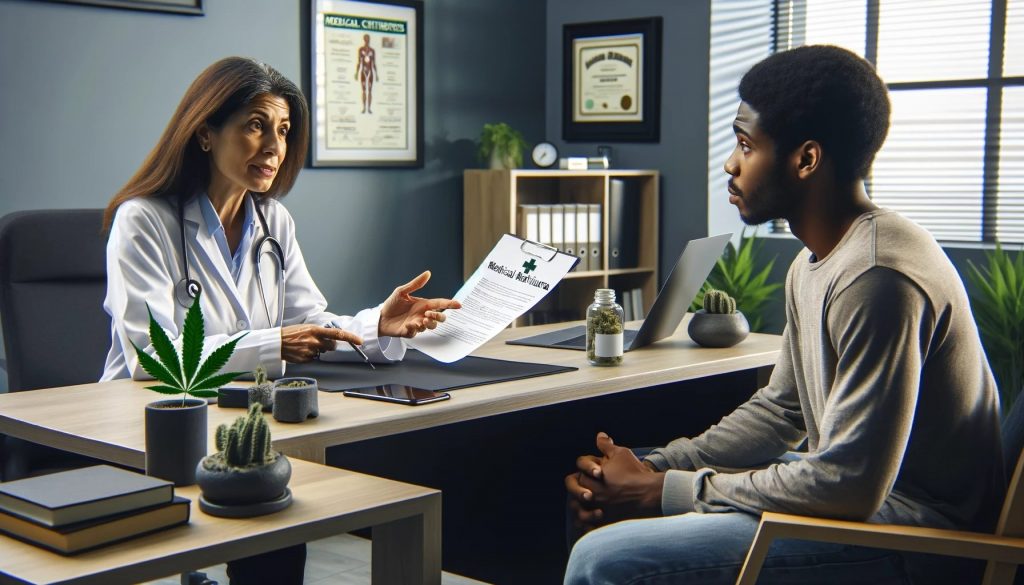
In Maryland, individuals with certain medical conditions may be eligible to use medical marijuana as a treatment plan. The state has established a list of qualifying conditions deemed appropriate for medical cannabis therapy.
- Cachexia: Cachexia is a complex metabolic syndrome characterized by severe weight loss and muscle wasting. It often accompanies advanced stages of chronic illnesses like cancer, HIV/AIDS, or certain neurological disorders. Medical marijuana may help stimulate appetite and prevent further weight loss in individuals with cachexia.
- Anorexia: Anorexia, in the context of medical marijuana qualification, refers to a significant loss of appetite or an aversion to food, often due to underlying medical conditions. Medical cannabis can increase appetite and help patients maintain a healthier weight.
- Wasting Syndrome: Wasting syndrome is a term used to describe unintended and severe weight loss, often associated with chronic diseases like cancer, HIV/AIDS, or other conditions that lead to muscle atrophy and malnutrition. Medical marijuana may help combat this condition by increasing appetite and improving nutritional intake.
- Severe or Chronic Pain: Severe or chronic pain resistant to other treatment methods may qualify patients for medical marijuana. Cannabis can act as a pain reliever and anti-inflammatory agent, relieving individuals suffering from neuropathy, arthritis, or other chronic pain disorders.
- Severe Nausea: Conditions and medical treatments like chemotherapy can cause severe nausea and vomiting. Medical marijuana may help manage these symptoms and improve the quality of life for patients undergoing such treatments.
- Seizures: Certain epilepsy and seizure disorders may not respond well to traditional medications. Medical cannabis, particularly products rich in CBD (cannabidiol), has shown promise in reducing the frequency and severity of seizures.
- Severe or Persistent Muscle Spasms: Conditions like multiple sclerosis can lead to severe and persistent muscle spasms, which can be debilitating. Medical marijuana can act as a muscle relaxant and relieve individuals with these symptoms.
- Glaucoma: Glaucoma is an eye condition characterized by increased intraocular pressure, which can lead to optic nerve damage and vision loss. Medical marijuana can lower intraocular pressure and potentially slow the progression of the disease, although it is not a first-line treatment.
- Post-Traumatic Stress Disorder (PTSD): PTSD is a mental health condition resulting from exposure to traumatic events. Medical marijuana may be prescribed to manage anxiety, nightmares, and insomnia, often associated with PTSD.
- Another Chronic Medical Condition: Individuals with a chronic medical condition not explicitly listed but deemed severe and unresponsive to other treatments may also qualify for medical marijuana. In such cases, a healthcare provider will evaluate the patient’s condition and determine if cannabis therapy is appropriate.
It’s essential to consult with a qualified medical marijuana doctor and meet the specific criteria outlined by the MCA to determine eligibility for the use of medical marijuana for any of these conditions.
Eligibility Requirements
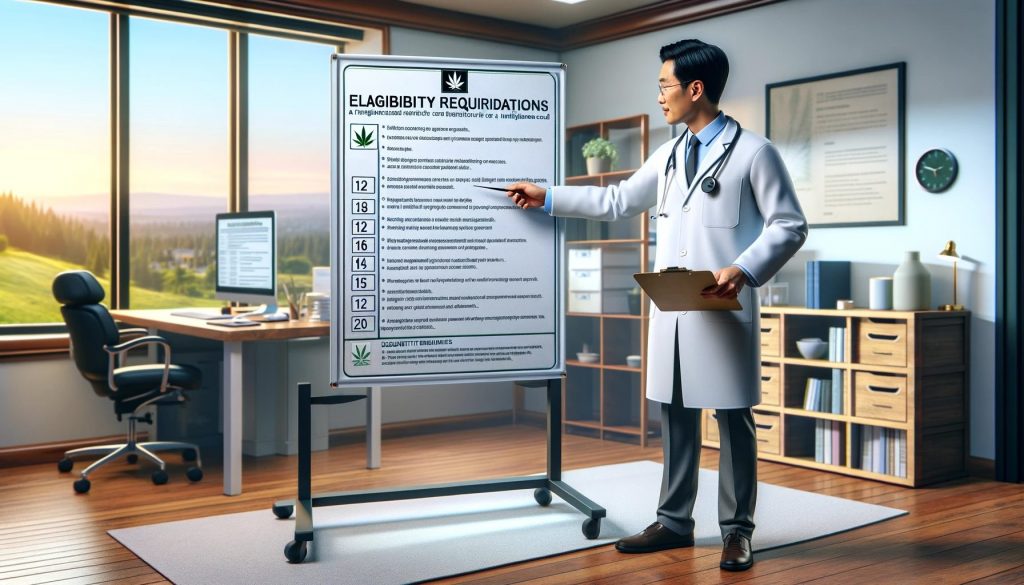
To become a medical cannabis patient in Maryland, specific eligibility requirements need to be met.
- First, individuals must have a valid and accessible email account, as communication regarding the application process will be done through email.
- It is also necessary to provide a full 9-digit Social Security Number.
- In addition, applicants must have an electronic copy of a valid government-issued photo ID with proof of residency, such as a driver’s license, state-issued photo identification card, military ID, or US passport. If the provided identification does not have the current address, two documents dated within the past 90 days that show the applicant’s name and address are required. Acceptable documents include:
- MVA registration card or title
- Utility, telephone, or cable/satellite TV bill
- Bank account statement
- Property tax bill
- Mortgage statement or proof of home ownership (Deed, Title, Bill of Sale)
- Major credit card bill (Visa, MasterCard, Wal-Mart, Target, etc.)
- Residential rental contract (lease or contract between landlord and tenant, including all signatures).
- Selective Service Card
- Federal, state, or local government mail issued by the state of Maryland (ie. Social Security, social services)
- Car insurance policy
- A clear, recent photograph of the patient is also necessary. The photo should resemble a driver’s license or passport photo, featuring the patient’s unobscured face with a plain white or off-white background. The file must be an image file (.jpg) size no larger than 3 MB and should not be digitally enhanced or altered.
There is an option for qualifying medical marijuana patients in hospice care to submit a letter from the attending hospice physician instead of a recent photo. The letter, on hospice letterhead, must state that the patient is under the physician’s care and can be uploaded in .jpg or .pdf format.
Qualifying patients enrolled in the Maryland Medical Assistance Program or the Veterans Affairs Maryland Health Care System may be eligible for a waiver of the $25 registration fee for the patient ID card. Proof of enrollment, such as a VA ID card or copies of the red and white medical assistance card, must be provided for the fee waiver.
It is important to note that these eligibility requirements must be met to apply for a medical card in Maryland.
Obtaining a Medical Cannabis Card in Maryland
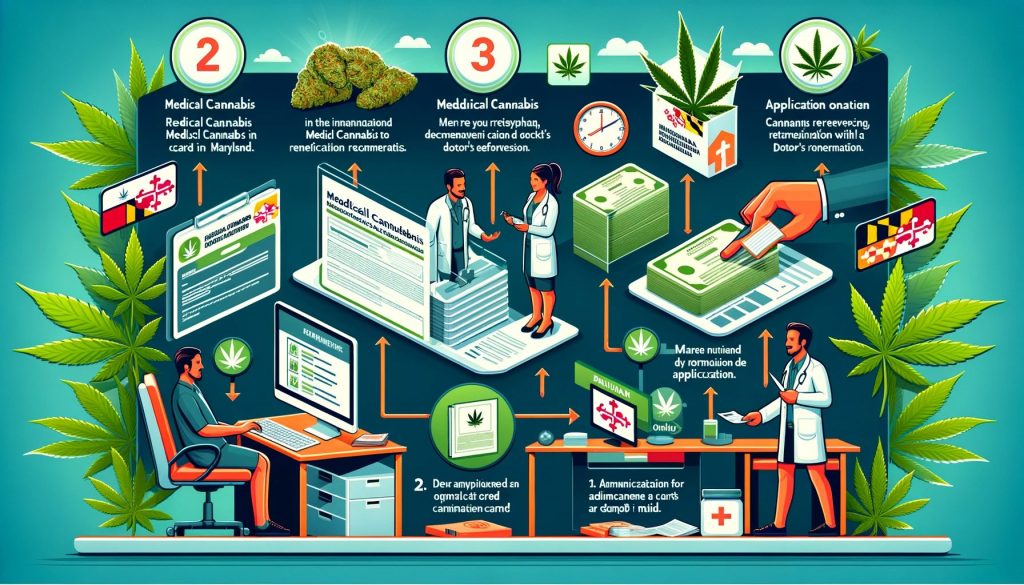
To legally obtain medical cannabis in Maryland, residents must follow a specific process.
1. The first step is registering as a patient with the Maryland Medical Cannabis Commission (MMCC). Adult patients, 18 years of age and older, must review the process overview for patient registration. Minor patients under 18 need at least one caregiver assigned to their account, with parents or legal guardians eligible to serve as caregivers.
2. After completing the patient registration, the next step is to obtain a written certification from a provider registered with the MMCC. The provider must have a bona fide provider-patient relationship with the patient and approve medical cannabis as a treatment option for a qualifying medical condition. These conditions include cachexia, anorexia, wasting syndrome, severe or chronic pain, severe nausea, seizures, severe or persistent muscle spasms, glaucoma, post-traumatic stress disorder (PTSD), or another chronic medical condition that is severe and unresponsive to other treatments.
Once both the patient and provider are registered with the MMCC, the provider can issue the medical cannabis certification through the Commission’s secure online application using the patient’s MMCC-issued Patient ID Number.
3. The final step is to visit a Maryland-licensed dispensary. After obtaining a valid written certification and printing a temporary MMCC Patient ID card, patients can purchase medical cannabis from state-licensed dispensaries. Patients must present their ID card at the medical marijuana dispensary, and the staff will verify the patient’s certification in the Commission’s database before proceeding with the purchase.
It’s important to note that patients can only purchase and possess a maximum of a thirty-day supply of medical cannabis at one time. Additionally, medical marijuana certifications not used to purchase medical cannabis within 120 days of issuance become null and void.
Unlocking the Benefits of Medical Marijuana in Maryland
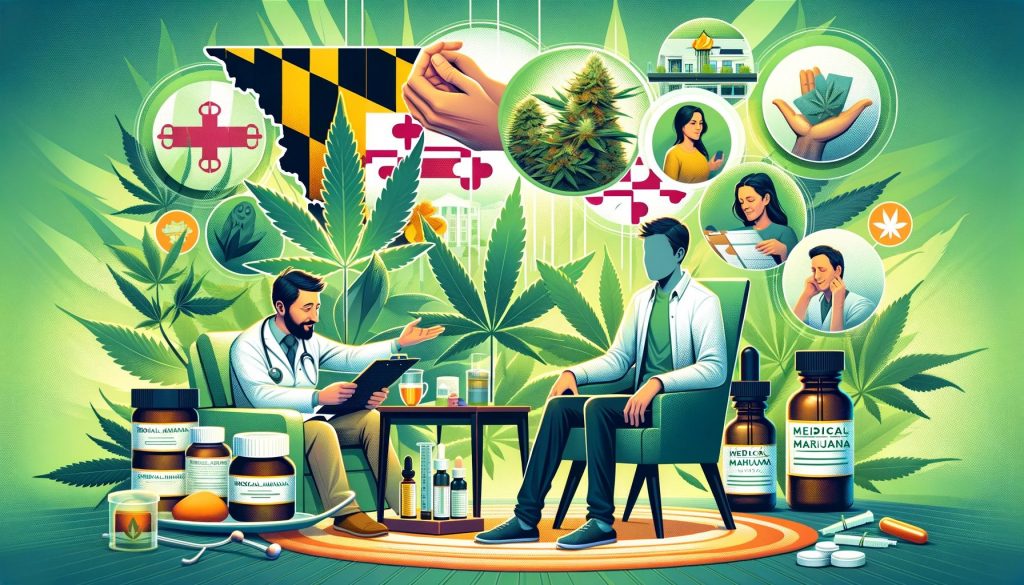
Suppose you reside in Maryland and believe that medical marijuana might be a suitable treatment option for your medical condition. In that case, you may wonder if you qualify for the state’s medical marijuana program. Understanding the qualification criteria is key to accessing the benefits of medical cannabis in Maryland.
If you believe you qualify for Maryland’s medical marijuana program and wish to obtain your medical marijuana card, consider contacting Greenway Consults at 410-762-8745. We specialize in assisting Maryland residents in navigating the medical marijuana program and can guide the process. We have access to a network of licensed physicians who can evaluate whether or not your condition qualifies for medical marijuana use under Maryland’s criteria.
Remember, it is essential to stay updated with the current status of the Maryland Medical Cannabis program to ensure you can unlock the benefits of medical marijuana for your qualifying condition.

 410-762-8745
410-762-8745